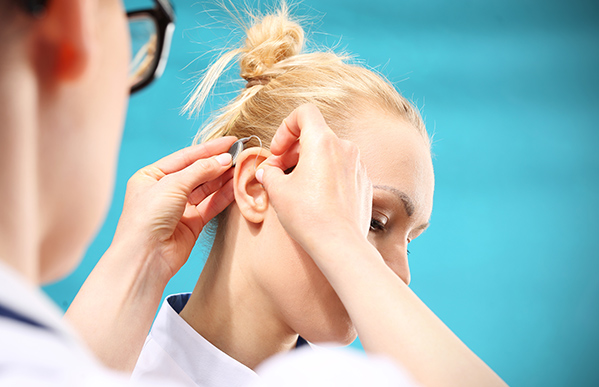
You have decided to improve your hearing with hearing aids, but now what? As a consumer, there are a few things worth considering before you make your final choice. Hearing aids vary by brand and style, for one thing. They come in various shapes, sizes and with features that may seem confusing to you at first. Each option changes the final hearing aid cost, too, so it’s all matters when you shop. Consider 10 things you need to think about before buying hearing aids.
1. Size doesn’t really matter
Don’t let the different sizes confuse you. Some hearing aids are tiny and stealth, but bigger doesn’t always mean better. It appears as if that tiny device can’t really be as effective has the chunkier ones, but the mechanisms in the small hearing aids are just as effective.
2. Good hearing aids offer more than just amplification
Hearing aids cost money, so look for ones that provide more than just a tiny speaker. Consider the various features available on the different types of hearing aids, so you know you are getting the one that best suits your needs. Think about what you want to accomplish with the device, too. Start by making a list your priorities and carrying it with you when you shop. This will help you pinpoint your personal needs.
3. Having a hearing aid isn’t going to bring back your hearing
There is a big difference between the way you once heard things and the way you’ll hear with a hearing aid. Make sure your expectations are practical A pair of hearing aids, even the best models, will not restore normal hearing.
4. Hearing aids will improve the quality of life.
You may not hear things the way you once did, but, even so, the hearing aids will make life better. You will hear what you were missing before, understand speech without working so hard and keep those background noises from becoming uncomfortably loud.
5. You need assistance finding the right hearing aids
A hearing aid is not really one of those things you pick up off the shelf or buy online from a big box store. Find a professional provider and let them help you select the best hearing aid for your life.
6. Get a hearing exam before buying hearing aids
This will pinpoint the cause of your hearing loss and be instrumental in finding the right hearing aids for your condition. Not all types of hearing loss will benefit from the basic hearing aid, so go into the buying process with all the information you need to make an informed decision including a professional hearing test.
7. Look for a provider that offers an in-store demo and trial period
The hearings aid cost requires you to be a smart consumer. It’s an investment, so make sure to try the hearing aids out first. The in-store demonstration ensures you know how all the features work and how to make adjustments as needed. If possible, get a trial period, as well, so you have a chance to use the devices in a real world setting to make sure they fit properly.
8. Don’t skip out on those critical add-ons
Things like directional microphones and telecoils are necessities in some careers and wireless technology means you can use phones with your hearing aid without having to resort to always using the speaker.
9. Read your contract carefully
Along with a 30 to 60 day trial period, you need to fully consider the warranty, maintenance choices and follow up appointments that come with your purchase. Ask for a written copy of the contract and read the fine print to see if there are hidden costs or nonrefundable fees.
10. Know the battery lifespan
Small, compact hearing aids require small batteries that may need replacing often. Some will last just days and that will factor into the cost. A larger unit is less stealth, but possibly more cost-efficient. Take your time when shopping for hearing aids, so you make the right choice at the right price for your budget and lifestyle.
